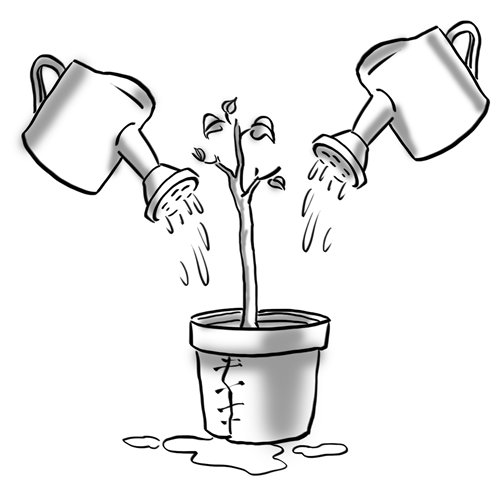
Illustration: Liu Rui/GT
Chinese President Xi Jinping and Premier Li Keqiang's meetings with Japanese Prime Minister Shinzo Abe on the sidelines of APEC and ASEAN summits augur well for ties.
Since Abe retook office at the end of 2012, Chinese leaders have met him at international events every year, except in 2013. However, unlike the serious expressions that set the tone of Xi's and Abe's first meeting in November 2014, the smiles made it different this time - a perfect sign of a warming Sino-Japanese relationship.
The real reasons why Abe seeks to improve Japan's ties with China are his cemented domestic power and the changing situation around Japan.
The ruling Liberal Democratic Party (LDP) led by Abe won a majority of seats in the lower house elections in October. As Abe is highly likely to be re-elected LDP president in September next year, he can sustain power until 2021. Along with a tight grip on power and stable relations with the US, Abe has more power to maneuver in diplomacy.
So for now, improving relations with China becomes the most important diplomatic mission of the Japanese leader. After all, for problems like the Korean Peninsula nuclear issue, Japan needs China's help. If Abe always demands China play a greater role in getting North Korea to stop nuclear development, but remains unable to improve Sino-Japanese relations, a solution will elude the Korean Peninsula crisis and people in and outside of Japan will doubt whether the Abe administration is sincere about resolving the issue.
Although the Terminal High Altitude Area Defense row has not been settled yet, ties between Beijing and Seoul have started to thaw and US President Donald Trump's recent visit to China has taken Sino-US relations to a new high. Under such circumstances, Japan needs to better ties with China as soon as possible to avoid a logjam in relations with Beijing, Washington and in Northeast Asia in general. Abe also wants to visit China and have Xi pay his first visit to Japan.
While meeting Abe in Vietnam, Xi said the two sides should push for cooperation within the framework of the Belt and Roadinitiative at an early date, to which Abe responded convincingly. This is the second time after June that Abe responded to the initiative.
Although Abenomics adopted at the end of 2012 has stimulated Japan's stock market and economic recovery, the declining and aging population makes Japan unable to compete with China. Meanwhile, both the Comprehensive and Progressive Agreement for Trans-Pacific Partnership (CPTPP) and the "free and open" Indo-Pacific strategy have an uncertain future.
Meanwhile, countries along the Belt and Road routes have massive demand for infrastructure, which is extremely attractive to Japanese companies trapped in limited domestic market. Hence, Japan is likely to participate in the Belt and Road initiative.
But as Tokyo remains eager to promote the CPTTP and the Indo-Pacific strategy, Japan's participation in the initiative will likely focus on the economic aspects.
Xi said during his meeting with Abe that China and Japan should properly manage their differences in a constructive way. This provides the best plan for the development of Sino-Japanese relations in the future. In fact, even the unbreakable relationship between the US and Japan, which is often touted by politicians in the two countries, still faces huge hurdles in trade. No wonder China and Japan have differences and need to deal with them wisely.
China's leaders have come up with a specific plan for better ties, which cannot be achieved by one-sided efforts. At the moment, when China and Japan come to a new start, we hope that Tokyo will take more practical steps to better bilateral relations.


